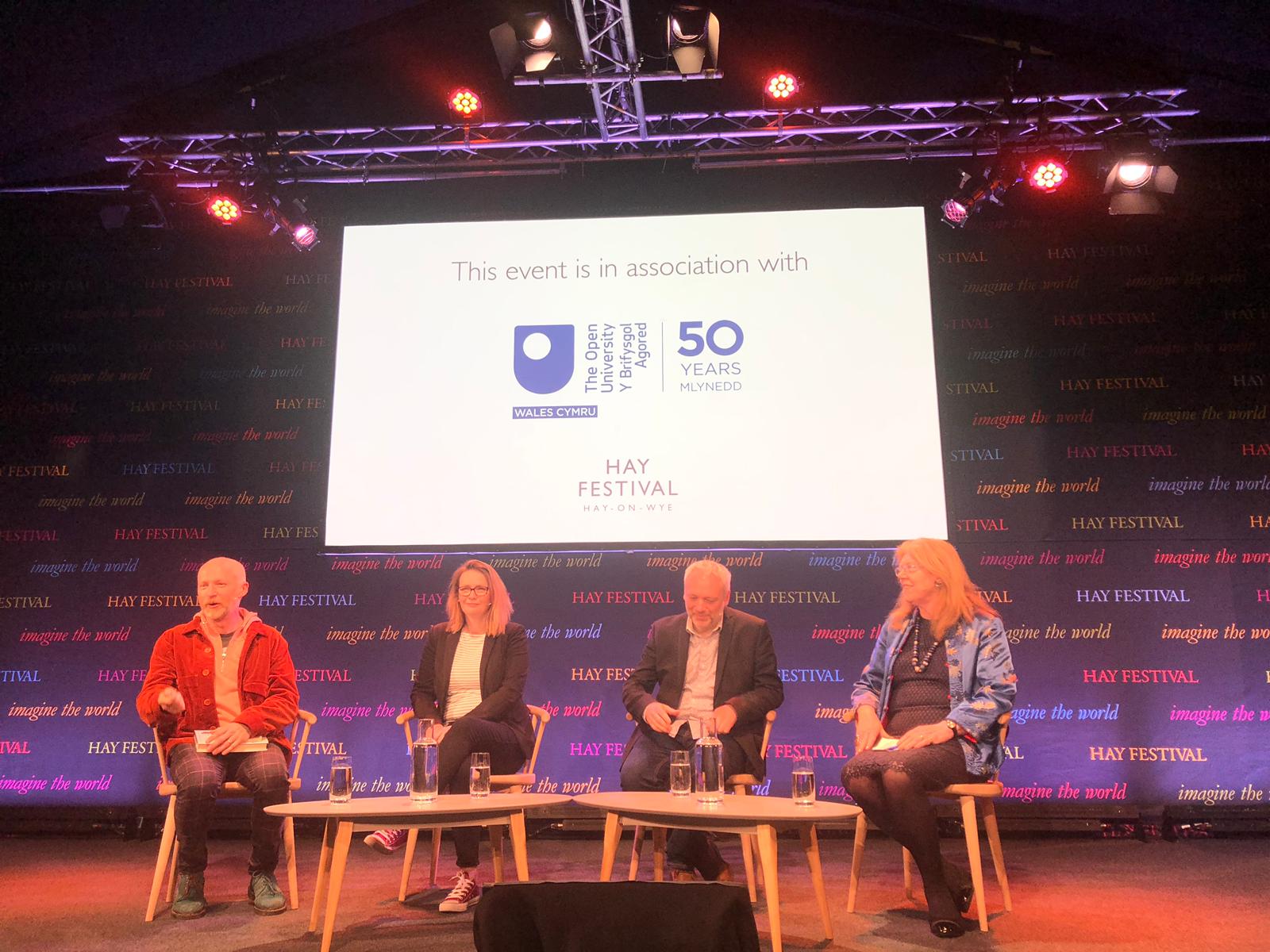
- New report by The Open University to mark its 50th anniversary explores what learning will look like by 2070
- Predictions from experts in the fields of science, technology, and international development
- Full sensory virtual reality and brain-to-brain learning among key predictions
Brain-to-brain learning could be a reality by 2070.
This is according to the Future of Learning 2070: Imagine What’s Next report, which unveils predictions on what learning will be like in 2070 based on interviews with leading experts across the field of science, technology, engineering and mathematics.
The findings, which have been released today to mark The Open University’s 50th anniversary, reveal a wealth of opportunities for enhancing education, making it more flexible, more accessible and ultimately helping to widen access for everyone.
- The AI Coach
With the rise of AI systems, there is a greater understanding of how we are motivated and triggers for changes in our emotional state. It will therefore be possible to have an AI learning coach who understands you better than you understand yourself, which will lead to “self-hacking”. It will be able to send you triggers, snippets and rewards to get you in the mood to study. This might include subliminal adverts within a social feed that remind you that you have a pending assignment. Or it could send praise or even a gift after a particular hard study session. AI systems will also be able to influence your study behaviour without you even being aware that it’s happening. - Full-sensory virtual learning
Face-to-face learning interactions will also be seamless between physical and virtual learning spaces: students and educators will dip in and out of these spaces as avatars, or as their real world selves.
All five human senses could also be digitally stimulated to create a full-sensory virtual reality (VR) learning experience, no longer limiting them to human interactions. This could include training via simulations, role-play, in procedural learning and for practising risky scenarios that are difficult or sometimes impossible to re-construct in real life – such as being able to operate on someone surgically – all from the comfort of your own home. Plus with advances in wearable technology you could experience this VR wherever you wanted, with people from across the world.
- Brain-to-brain learning
The report predicts that devices, which can be worn externally over the head or embedded directly within the brain will allow a direct communication pathway between the brain of one person and the brain of another. Within just 25 years it is likely that it will be possible to transfer knowledge associated with controlling simple devices and simple motor skills. Later complex motor-skill abilities such as skiing, dancing and horse riding may become directly transferrable. Within 50 years, it is possible that highly complex and abstract concepts are transmissible via brain-to-brain learning. This could mean, for example, that the ability to understand a new language, play a musical instrument or diagnose a disease from patient symptoms could be easily passed from person to person. This may lead to a new profession of Brain Tutor – teaching online through brain-to-brain connections. - Virtual reality 2.0
Recognising that the most important aspect of learning will always be ‘doing’, the report predicts that virtual reality will become infinitely better – allowing remote users a much more immersive experience than it currently does. Students will be able to virtually utilise all five senses, as we develop methods where learning from touch, taste and smell are as important as sight and sound. Virtual reality in the future will expand our horizons beyond the boundaries of Earth, allowing students to experience and learn from zero gravity environments as additional laboratories.
To coincide with the report launch, The Open University in Wales hosted a special anniversary event at the Hay Festival yesterday (2 June). OU academics Prof Martin Weller and Prof Eileen Scanlon were joined by Welsh Government Education Minister Kirsty Williams AM and Marcus du Sautoy to discuss the future of education, at a talk titled ‘The OU 50th Anniversary Lecture: What will Education look like in 2070’.
Louise Casella, Director of The Open University said:
“Technology continues to revolutionise the way we learn, from anticipating the needs of learners through AI, to technology platforms that open up learning to everyone. At The Open University we have always been at the forefront of innovation, with some of the future’s brightest minds leading the way. We’re constantly exploring new technologies to help us move forward in line with some of the advances detailed in this report and, while we are proud of our achievements over the past 50 years, they are just the beginning. We’re incredibly excited for a future where new technologies help widen participation and make education open to all.”
To view the full report visit: https://50.open.ac.uk/futureoflearning


